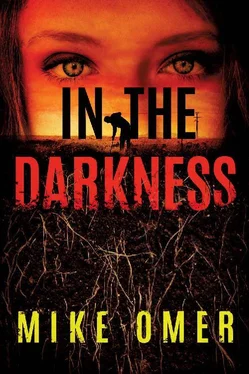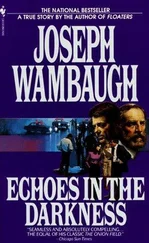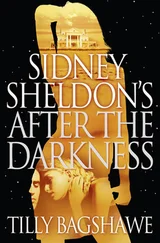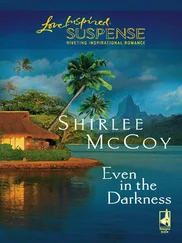“I don’t think it’s technical problems,” Zoe said. “See the video running time? It never stopped. This is intentional. He’s turning the public feed on and off.”
“Why?”
“ That’s experiment number three,” she said. “Not the acid. He’s playing with us again. Remember what that physicist told us? A state of superposition. Every time he stops the feed, we don’t know if Juliet Beach is alive or dead. She’s in both states at once. The acid container is there to make us think that it might open at any moment. To increase our uncertainty. To make us wonder if she’s alive or dead.”
“Or it’s real.”
“It’s not real.”
“Fine,” Foster spat. “Give me something I can use. This map is huge, and for now I have two dogs and one clunky GPR that just broke down. Where should they look first?”
Zoe hesitated. “There’s a geographic profiling formula. It calculates the distance where a criminal might strike next on the basis that, statistically, criminals strike farther from their home each time. It’s . . . highly inaccurate and demands that I guess some variables that denote elements in his psyche.”
“That sounds complicated. We don’t have time, Zoe.”
“It’s not complicated. It’s just an estimation.” She sat down and scribbled in her notebook, recalling the formula from memory. She never trusted the method completely; she’d seen too many criminals work outside the buffer zones that the formula predicated. And she hated inaccuracies.
But they had to start somewhere.
“Well?” Foster asked, impatient.
“Hang on,” she said testily, eyeing the variables one more time, trying to see if they matched the geographies of earlier crimes. More or less. She could give a better estimate in half an hour, but for now . . .
“Six to eight miles from his home,” she said. “I’d say we can treat his home as the center of San Angelo, for now. It seems to fit the previous crime scenes.”
Lyons was already on the map, calling out locations to Foster, who rattled them off to dispatch, ordering them to send the K-9 units there.
Juliet couldn’t breathe. That was the first sensation she had, and it stayed with her. The darkness was so complete it had a texture of its own, like a weightless material draped over her body, clinging to her, never letting go.
She’d screamed for so long she’d nearly thrown up, managing to stop just in time. With the gag in her mouth, she’d surely suffocate and die.
She would probably die anyway.
If she lay perfectly still on her back, she could almost imagine she was in a vast dark room. But every single movement dispelled this notion. The walls of her prison were closing in on her from all sides. The wooden plank above her was less than two inches from her nose. Kicking with her foot had resulted in a bruised knee and ankle.
Her throat was hoarse, her crotch itchy and damp. She’d wet herself earlier, the pressure in her bladder unbearable. Her recollection from the night before was in tatters. She’d gone out with Tiffany and Luis . . . remembered riding the car, and then . . . ?
Sensations and fragment of images, blinking in and out like fireflies. A blade held to her throat. A grip on her arm. The sour smell of a stranger’s sweat.
She screamed again. And wept. And then let the silence creep in again.
And then . . . another sound. What was it? Thumping? A steady thump, so familiar but hard to pinpoint in this prison.
Bass. This was the rhythm of music. Somewhere, not too far, someone was listening to loud music.
She screamed again, gathering all her strength, feeling her throat give.
The music faded.
And then, unable to stop herself, she threw up, the vomit filling her mouth, up her nose, clogging her nostrils, and there was no air.
“What’s that sound?” Tatum asked.
“What sound?” Zoe asked, frowning. There were about a bazillion sounds, with Foster and Lyons talking over each other on the phone and a portable police radio unit that Foster had dragged into the situation room crackling with the channel dedicated to the search. The video had already blinked in and out four times, and each time the tension in the room rose higher as they all wondered if the feed would return or if this time, the killer would leave it off.
“There’s a sound in the video.” Tatum looked around him. “Foster! Lyons! Shut up for a goddamn second.”
They did, and Foster switched off the radio. All that was left was the video’s sound. Juliet’s whimpering. And a steady sound of bass.
“Music,” Tatum said.
“Someone’s listening to music nearby?” Foster asked incredulously. “Do you think it’s possible she isn’t buried at all?”
“No, listen—it’s fading,” Zoe said.
At that moment, Juliet began screaming through her gag desperately, and the bass became impossible to hear.
“I think it was a car playing loud music that went nearby,” Zoe said. “This victim is buried a lot shallower than the other victims.”
“Good, that’ll help the K-9 dogs,” Lyons said.
“Something’s wrong.” Tatum tensed, crouching over the screen. “Look at her.”
Juliet bucked and struggled uncontrollably. Froth bubbled at the corner of the gag. A blob of liquid spurted from one of her nostrils. Zoe glanced at the metal contraption, wondering if she’d been wrong, if it was poison after all, but it was still shut. Then she realized what had happened.
“She just threw up.” Foster’s voice was strained. “She’s choking. Damn it!”
The sensation of helplessness was devastating. All they could do was watch as the girl struggled, her eyes widening, her throat contracting. She shook her head, slammed it against the lid of the box, scratching her forehead. Zoe held her breath, almost as if identifying with the girl’s horrific situation.
And then another glob of liquid spurted from Juliet’s nostril, and she stopped struggling. The girl blinked, the nostril contracting and expanding. She’d managed to clear a way to breathe the limited supply of air she had. A steady trickle of blood ran from the gash in her forehead, but it didn’t seem serious.
Tatum exhaled slowly. “That was close.”
“Too close,” Lyons croaked.
“The music,” Tatum said. “Maybe we can somehow locate the vehicle that played it. Backtrack his route and figure out where Juliet is.”
Foster stared into space.
“Foster, are you with me? We can tell the patrol vehicles to look for someone who’s playing really loud—”
“The hell with that.” Foster was already fiddling with his phone. “We can do so much better.” He put the phone to his ear. “Listen. I want you to tell all patrols to start playing loud music using their siren speaker. As loud as possible, okay? We’ll be able to hear it if they go past where she’s buried. That’s right. And tell them to pick songs with bass. As much bass as possible. You need to coordinate between them so that they don’t play the same damn song.”
He flipped on the radio. It already crackled with the dispatcher’s voice as she relayed Foster’s instructions. He grinned at the rest of them.
“We might actually find her.”
Juliet’s throat was raw, the taste of vomit a constant, nauseating sensation in her mouth. She didn’t move much anymore; she didn’t have the strength. She wondered vaguely if the air had run out, if she’d finally die soon.
Her head throbbed. A wet trickle of liquid ran down the right side of her forehead—she was pretty sure it was blood. She wished she could wipe it off.
Her shoulders were in agony, a consequence of lying for hours with her hands pulled behind her back. Whatever bound her hands had a nasty bite. At first she’d kept moving her fingers to make sure the blood flowed to her palms. Now she couldn’t bring herself to care. One way or another, she wanted this to end.
Читать дальше











